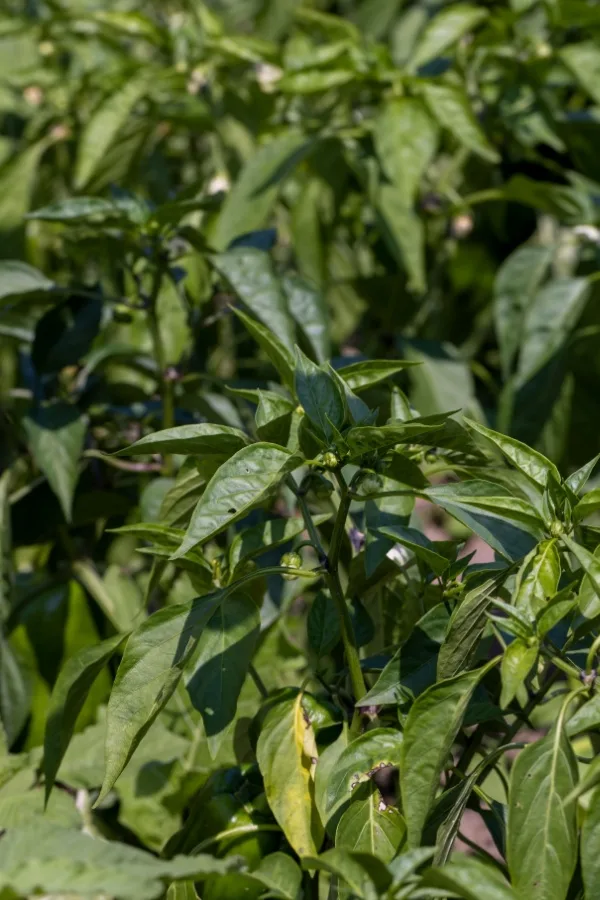Organic Vs. Synthetic Fertilizers: Which Is Best for Supporting Healthy Pepper Plants?
In the realm of nurturing healthy pepper plants, the choice in between artificial and organic plant foods stands as a crucial choice with significant implications. While both options purpose to provide crucial nutrients to sustain plant growth, the subtleties of their influence on the dirt, plant health, and the setting stimulate an argument that echoes throughout the gardening area. Recognizing the unique advantages and possible mistakes of each fertilizer kind is important for pepper growers seeking to enhance their returns while preserving an eco-conscious and lasting method.
Advantages of Organic Fertilizers
Organic plant foods provide a lasting and environmentally-friendly technique to nourishing pepper plants, giving vital nutrients without using artificial chemicals. These all-natural fertilizers are stemmed from organic resources such as garden compost, manure, bone meal, and algae, advertising soil wellness and biodiversity. Unlike synthetic plant foods, natural options launch nutrients gradually, making sure a stable and balanced supply for pepper plants to flourish.
One substantial benefit of organic plant foods is their capacity to improve dirt framework and water retention. By enhancing soil wellness, natural fertilizers promote valuable microbial activity, which helps in nutrient uptake by pepper plants. Furthermore, natural plant foods minimize the danger of chemical run-off, shielding water sources from pollution and guarding the setting.
Furthermore, organic plant foods add to long-term soil fertility by advertising the development of beneficial soil organisms. These organisms assist damage down natural issue, launching nutrients in a kind that is conveniently accessible to pepper plants. best fertilizers for peppers. By fostering a healthy soil environment, natural plant foods sustain lasting pepper growing practices that benefit both plants and the environment
Drawbacks of Synthetic Fertilizers
Artificial plant foods, in contrast to their organic equivalents, present different downsides when utilized to nourish pepper plants, impacting both plant health and ecological sustainability. One significant downside of artificial fertilizers is their tendency to leach nutrients from the dirt promptly.
Moreover, the overuse of synthetic plant foods can add to water contamination. Excess fertilizers not taken in by plants can remove right into water bodies, causing eutrophication, where algae blooms diminish oxygen levels in the water, damaging water life. Synthetic fertilizers are normally derived from non-renewable sources, such as fossil fuels, adding to carbon discharges and ecological deterioration throughout their production.
Nutrient Absorption Contrast
Reliable nutrient absorption plays a vital role in the total health and development of pepper plants. When comparing synthetic and natural fertilizers in regards to nutrient absorption, organic plant foods have the benefit of offering an extra balanced and slow-release source of nutrients (best fertilizers for peppers). Organic plant foods include a range of macro and micronutrients that are not only valuable for the plants but additionally promote healthy and balanced soil microbial task, which aids in nutrient uptake. On the other hand, Get More Info artificial plant foods frequently supply a fast release of nutrients, which can lead to leaching and overflow, resulting in lower nutrient absorption prices by the plants.
Furthermore, organic fertilizers enhance dirt framework and water retention ability, allowing pepper plants to gain access to nutrients much more successfully. This improved soil quality facilitates origin advancement, enabling better nutrient absorption. Artificial plant foods, although at first enhancing plant development due to their high nutrient focus, might hinder long-lasting nutrient absorption by degrading dirt health over time.
Ecological Influence Factors To Consider

On the various other hand, synthetic plant foods, although usually even more quickly offered and focused to plants, can have harmful effects on the atmosphere if not used appropriately (best fertilizers for peppers). Their production calls for high power inputs, leading to greenhouse gas discharges and adding to environment change. In addition, the overflow of excess artificial fertilizers can infect water resources, causing eutrophication and hurting water ecosystems.
Ideal Fertilizer Practices for Peppers
When fertilizing pepper plants, enhancing nutrient uptake and lessening ecological influence are key considerations. To accomplish this, it is important to follow best fertilizer techniques tailored to look here the specific needs of pepper plants. One important method is to do a dirt examination prior to using any type of plant foods. This examination can figure out the pH level of the dirt and determine any type of nutrient shortages, directing you in choosing the most suitable fertilizer formulation.
One more essential practice is to feed pepper plants at the right time. Typically, peppers take advantage of receiving fertilizer at growing and afterwards again when they begin to blossom. Over-fertilizing can cause nutrition imbalances and harm the plants, so it is vital to adhere to suggested application rates.
In addition, selecting a balanced plant food with an NPK proportion that suits pepper plants' needs is basic. Organic fertilizers, such as garden compost or manure, can be exceptional selections as they launch nutrients slowly and boost soil framework gradually. Synthetic fertilizers can give a fast nutrient boost when required. Eventually, combining artificial and organic plant foods sensibly can aid nurture healthy and balanced pepper plants while lessening environmental influence.
Final Thought

Organic fertilizers provide a lasting and environmentally-friendly technique to nourishing pepper plants, providing important nutrients without the usage of artificial chemicals. Unlike artificial plant foods, organic options release nutrients slowly, making sure a balanced and constant supply for pepper plants to grow.
Artificial plant foods, in contrast to their organic counterparts, posture numerous downsides when made use of to nourish pepper plants, influencing both plant health and ecological sustainability. When comparing artificial and organic plant foods in terms of nutrient absorption, organic plant click over here foods have the benefit of providing a more well balanced and slow-release source of nutrients.Additionally, organic fertilizers improve soil framework and water retention capacity, permitting pepper plants to access nutrients a lot more successfully.